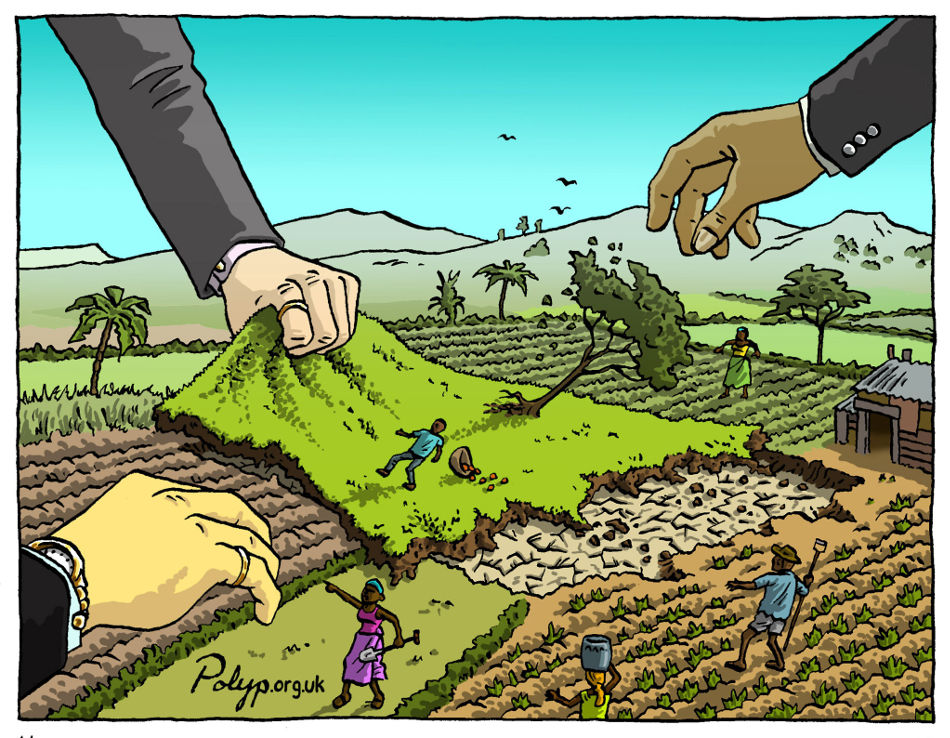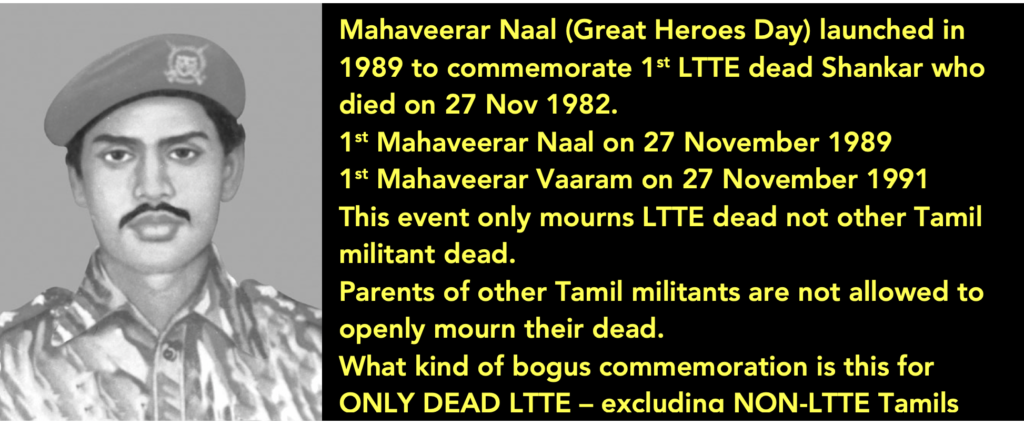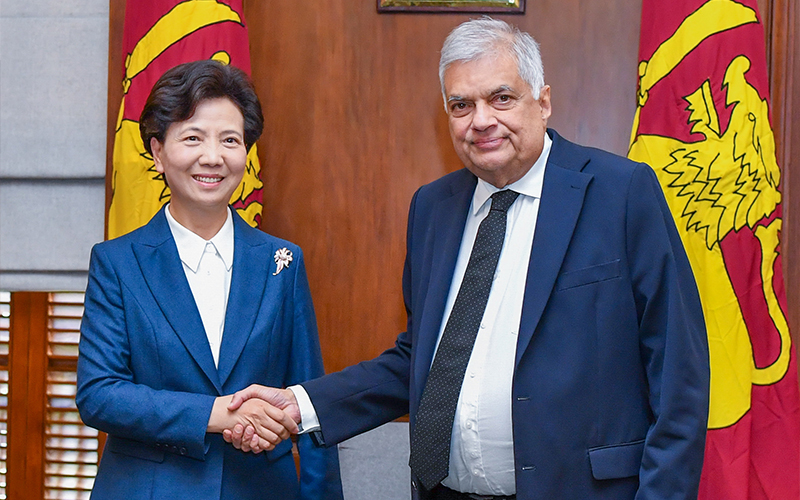By Sena Thoradeniya
(Continued from 24, October, 2023)
Some Land Claims of Kandyan Chieftains
1. SABARAGAMUWA AND UVA
In 1875 a vast quantity of valuable forest land was claimed by Chiefs and Headmen what were known as British Grants” – conferred upon them soon after the Kandyan War of Independence in 1817-1818 for the services rendered to the British Crown in quelling the uprising. In many cases the extent of field held by virtue of the deed was far in excess of what was specified. This was the observation made by A.R. Dawson, Assistant Government Agent of Sabaragamuwa on land claimed by Kandyan chiefs. At this time Sabaragamuwa was a part of Western Province.
How Kandyan Chieftains claimed Crown” land, their extent and administrative work with regard to land claims and dilemmas faced by British Civil Servants are being discussed in this article that shows the unquenchable greed of Chieftains for land. It is evident that they abused their high office to claim more and more land.
In 1895 Herbert Wace reported, at Vikiliya, Welange Banda Aratchi claimed a whole village and cut forests showing that he possessed a certificate of authority; but Wace found that Governor Brownrigg had authorised him only 1 amunu, 3 pelas and 5 kurunis and ordered that Welanga Banda had no right to cut forests. Wace gave the same order to the claim of Mahavalatenna for forest lands along the ridge from Detanagala towards the Dickoya ridge; Mahavalatenna held Medagama lands on a similar certificate and sold timber to planters in Bogawantalawa tea district.
In 1895 H. White, Acting Government Agent of Uva Province had reported on several unsettled land claims; disputed Thaldena Sannasa, Rambukpotha Sannasa and Ketawela Nindagama claim, grants made to Katugaha by Edward Barnes and Thelenis Dias claim were few examples.
2. EKNELIGODA CLAIMS
A close friend of Ehelepola, Ekneligoda was the leader of the Sinhala troops who went to capture the last King. He was amply rewarded by the British for his treachery with land and a post of Muhandiram. Later he was made a Disava. He informed D’Oyly that some Bhikkhus headed by Ihagama Unnanse were conspiring to overthrow the English Government. During the 1817-18 freedom struggle he along with English troops was engaged in a mopping up operation devastating the entire Uva region in search of the so -called Pretender to the Throne. He was awarded land and a gold pendant. British took care of his son and a nephew to give them an English education converting them to Christianity.
He was granted Muttettu fields of Hiramadagama, 4 amunus and 6 kurunis in the Meda Palatha of the Atakalan Korale in the Disavony of Saffragam by Governor Brownrigg, signed by George Lusignan, Secretary for Kandyan Provinces. Whereas the loyalty and good conduct of Eknelligoda Maheepawle (Mahipala) Akkrak Kooroppoo (Kuruppu) Wickrema Singhe Basnayake Moodiyanse (Mudiyanse) have entitled him to some mark of royal favour and munificence and it is our desire to mark the sense we entertain of the same by a permanent Grant of Lands which by enduring to his posterity shall be a proof for the future of the estimation in which their Ancestor was held …”
This was extended to his Heirs and Assigns forever in full right as Paraveny or heritable property, free of duty to Government”.
Later, one of his heirs claimed lands called Weerahinga Panguwa, Bawhinne Panguwa, Weerkuttige and Ranahinga Panguwa situated at Embilipitiya and Diyapotagam Panguwa and Pallebedda Gewathu Panguwa under a sittuwa. As the claim was for a large one it was referred to H. C. P. Bell, the Archeological Commissioner. This land has been treated as a Crown” land for a long time. The sittuwa has been examined in 1866 by one Muhandiram and was certified as genuine.
Government Agent was smart enough to declare it as fake. He said, calculations that the waning moon on the said month and year falls on a Friday and not on a Saturday and this discrepancy throws a great deal of doubt on the genuineness of the sittu.”
Bell stated in 1904 that it was virtually a royal sannas granting specified lands to Wijesundara Mudaliya of Pallededda in recognition of his military service granted in the year of 1636 by Samaradivakara Wickremasinghe Mudiyanse Ralahami Maha Adikaram of Mahanuwara who held the positions of Udunuwara Rata Atapattuwa and Gilimale, Bambarabotuwa and Sabaragamuwa Disava.
According to Mandaranpura Puwatha during this period Arave Samaradivakara was the Maha Adikaram.
The petition sent to Governor McCallum by Ekneligoda Molamure Kumarihami, daughter of Ekneligoda Disava and widow of the late J. C. Molamure, Police Magistrate, shows how servile even the females of these chieftains’ families were.
That Your Excellency’s memorialist is the only daughter of the Venerable Ekneligoda Disava of Saffragam whose claims government for preferment have begun since his ancestor was instrumental in the capture of Sri Wickrama Rajasinha the last Kandyan king for the British Government in A.D. 1815”.
Unashamedly the petitioner says that her ancestor was instrumental in capturing the last king.
She affirms that she was married to J. C. Molamure, the Police Magistrate of Sabaragamuwa at the time of his demise in A. D. 1902 and her son-in-law J. A. Rambukpotha the present Rate Mahattaya of Patha Hewaheta was also a descendent of Kandyan chiefs. She begs to appoint him as Rate Mahattaya of Kadawath and Meda Koralas rendered vacant by the retirement of Mahavalatenne.
In 1912 Mahavalatenna also sent a petition to the Governor mentioning that he will retire shortly pleading: That according to the usual privileges of Kandyan chiefs to appoint one of petitioner’s two sons-in-law to succeed him in office”. His one son-in-law was A.O. Jayawardena, acting Muhandiram of Negombo married to his elder daughter in a binna marriage in 1905. He was made a Korala after marriage.
3. DULLEWA CLAIMS
In 1895 Dullewa Adigar claimed Welivita lands in Laggala Pallesiyapattuwa for himself and his brother which the Assistant Government Agent, took down in writing, just a few months before his retirement. Laggala Pallesiyapattuwa is the eastern division of Matale East, bounded by the Mahaveli Ganga on the east, far away from Dullewa’s village.
In 1899 he claimed for (i) Beligamuwa and Medabedda villages (ii) Wahakotte (iii) Kinigama (iv) Haduwa and (v) Kumbiyan Ela lands. Beligamuwa and Medabedda were claimed on Ehelepola Sannasa under the will of his adoptive mother (aunt by relationship), Ehelepola Tikiri Kumarihami and her late husband Golahela Rate Mahattaya. Wahakotte land was claimed as it was been the property of his family. Although he claimed for Kinigama paddy fields he was not sure which fields he owned. For Haduwa land his claim was the whole village, as an appurtenant to his paddy lands, the extent being 34 acres 3 roods and 32 perches. The extent of the village was 1100 acres and 0.22 perches. Kumbiyan Ela was claimed in 1885. The then Assistant Government Agent Burrows reported that Dullewa had no legal claim whatsoever. This was reported to him by L. W. Booth, Special Officer. But of the Haduwa claim he was granted 355 acres, 3 roods and 3.36 perches.
Dullewa asked for permission to purchase 40 acres at Kinigama, from his original claim at an upset price of Rs.10/= or even Rs. 15/= per acre as he claimed that it was almost surrounded by his own land and as a consequent, he would be forced to buy it if it were put up for sale at whatever price it might raise for.
Dullewa claimed land at 15 more places such as Ehelepola, Polgolla, Dambogama, Galagama and Weliwita.
Later the Assistant Government Agent S. M. Burrows wrote in his Diary that Dullewa behaved disingenuously about a large grant of land which was promised to him on certain conditions carefully explained to him by me. Instead of attempting to carry them out he slipped into kachcheri when my predecessor’s back was turned and got the Head Clerk to give him the CQP” (Certificate of Quiet Possession).
According to the documents we have perused Dullewa claimed 5 acres of Hapugahalanda lands also, which was also known as Hapugahalanda Aswedduma at Madawala in Matale South.
Dullewa claimed land from Kandamulla Mukalana in North Western Province. The Surveyor General wrote in 1908 that the land that Dullewa claimed were scattered all over 280 square miles in Matale District and amply suffice for a 5-year programme! He had claimed villages of Akarahediya, Galgediula, Amunuwela and Welivita amounting to 9000 or 10000 acres. These cases were investigated even after his death. In 1917 one of his heirs who resided in Kandy revived this claim.
4. Katugaha Claims
Katugaha Mohottala who was appointed by Sylvester Douglas Wilson to administer King’s Gabadagam in Uva was an arch-enemy of Keppetipola, the Dissava of Uva. He was suspended by Keppetipola. After Uva was divided into several regions he was appointed by Lusignan as Dissava of Medakinda, Uva.
In 1903 J. G. Fraser, Land Settlement Officer recorded that T.B. Katugaha, Rate Mahattaya of Yatikinda, Uva, claimed for 8167 acres of land in Yatabowa and Randenigoda in Wellawaya. Earlier in 1822 two grants were made by Edward Barnes to this claimant’s grandfather.
5. Ratwatte Claims
In 1909, Ratwatta Dissava wrote to T. G. Tyrrell Assistant Government Agent Matale, seeking his approval to kill game claiming that Rambukkoluwa Nindagama in Laggala Udasiyapattu belongs to him. His father in 1821 had stated to the Judicial Commission that Rambukkoluwa lands were given to his father by his great – grandfather and he had a firelock as a Sannasa for the land.
6. Mahavalatenna Claims
Mahavalatenna Mohottala was appointed by Brownrigg as Chief of Gon Badda (cattle department). He was a chieftain who served loyally to British Government during the 1817-1818 freedom struggle. Ekneligoda and Mahavalatenna were sent to repel attacks in Sabaragamuwa. Simon Sawers had praised what was done by Ekneligoda in opposing Kandians”. Mahavalatenna boasted that he would not return until he had killed or captured all the enemy leaders (Sinhale freedom fighters). Sabaragamuwa was divided into three parts and Mahavalatenna was given Kolonna, Meda and Kadavathu Koralas.
As he had provided information about a conspiracy in 1834, this S. D. Mahavalatenna Banda (Mahavalatenna Mudiyanse/ Mahavalatenna Mohottala) was appointed as the Maha Adikaram in 1835, a case of a lower ranker, a Mohottala receiving the highest position as Adigar. In 1837 Governor Wilmot Horton gave around 7000 acres of land to Mahavalatenna, (confiscated Morahela Nindagama land belonged to Dissava of Wellassa and Batticaloa who joined the freedom struggle) on the birthday of King William IV together with a silver urn.
In 1912, Government Agent Sabaragamuwa, when Mahavalatenna Rate Mahattaya of Kadawathu and Meda Koralas was on leave prior to retirement, forwarded an application and recommended Mahavalatenna’s son-in-law Barnes Ratwatte (Clerk, Class IV, Grade II, employed at Kandy Kachcheri) as his successor. Appointment of one of the same family would be welcomed by the native population and by the planters” was GA’s opinion. He further wished in recognition of Mahavalatenna’s long service and the services of his father and grandfather who was especially honoured by the Government with the work of Adigar and in view of the extensive interact which he possesses on landed property in the district, His Excellency may appoint him JP and UM for Meda and Kandukara Koralas”. Thus, Mahavalatenna was appointed as Justice of the Peace for the district of Ratnapura and Unofficial Police Magistrate. Barnes Ratwatte was appointed in August 1912.
A printed document compiled by Mahavalatenna Bandara in 1907, Memorandum on the No. of Kandyan Adigars in the Kandyan Government at one and the same time” sheds some light to that another Mahavalatenna had pleaded to the English Government to appoint him as an Adigar. This was referred to H. W. Codrington, Assistant Government Agent of Kegalla District at the time. Codrington had made his observations to Colonial Secretary on this matter. A third Adigar was appointed for the first time by the Government in 1832 in the person of Mullegama. After the abolition of a separate administration for the Kandyan Provinces Molligoda and Dullewa were dismissed for treason and Mahavalatenna Disava who had given information was made First Adigar”.
A book printed by The Colombo Apothecaries Co. Ltd. In 1913 titled, The Mahavalatenna Family of the Sabaragamuwa Province: Services and Ancestral Clans, compiled for the Exclusive Purpose of Submitting to the Government” is one of our most interesting finds. At the outset it gives the history of Mahavalatenna family during the last 500 years from 1410 A. D., records of John D’oyly, services rendered by the Mahavalatenna First Adigar during the Kandyan Wars. We quote: In 1835 Mahavalatenna was appointed First Adigar of Palle Gampaha for his services during the wars of 1815 and the rebellions of 1817 and 1834”. He was the first individual to awaken the vigilance of Government to the existence of any treasonable intention”.
Treachery to his own country was cited as heroic deeds to curry favour with the colonialists and gain more power and higher office. Their descendants who publish books in English for example, Four Kandyan Families from the Maha Disawani of Matale, Dumbara and Uva” (2005) have completely forgotten or hidden the sources or had not explored the available sources how their ancestors were elevated to higher positions by the British colonialists. The title of this publication itself is wrong as Dumbara was neither a Maha Disawani nor a Sulu Disawani in ancient provincial administration. It was a Rata.
7. Rambukpotha Claims
Rambukpota Mohottala surrendered to the British and gave valuable information about the freedom fighters. He said he was kidnapped and compelled to declare his allegiance to the Pretender”. Younger Rambukpota accompanied a party in search of the Pretender” scaling mountains of Mandaran Nuwara.
In 1903 a claim for the entirety of Rambukpotha village was made by the Rambukpotha family upon a sannas written in 1766 and a claim for the whole village of Dambavinna upon a copper sannas.
Rambukpotha Rate Mahattaya and his family when asked to produce evidence for their land claims mentioned that they claimed lands under Rambukpotha Sannasa. The Attorney General wanted to see a copy of it. It was sent to the Colonial Secretary by Acting Attorney General with an English translation. It was submitted to H. C. P. Bell, Archeological Commissioner for his opinion as to its genuineness.
Templer, the Crown Counsel reported that the sannasa should be rejected in his opinion. Archeological Commissioner had condemned it as there was no collateral evidence.
The claimant was called upon to furnish any collateral evidence in August 1895 by Herbert White, Government Agent of Uva. But he failed to do so.
With all these problems the Surveyor General was asked to survey the land claimed. The extent was 4000 acres. Survey General reported in 1900 that it will take at least a year to do cadastral survey in the unhealthiest district in the Island.”
The sannasa on which Rambukpotha claim was based was written in 1767, gifting 158 amunams of land to Wasanahami Etana on faithful service in the Palle Maha Wasala.
Bell reported on 26, September, 1900 from Topawewa (as dispatches to him were sent to his work station), that this lady was probably a lady-in-waiting or she may have stood in closer communication with the King himself”.
Genuine sannas of this reign (Kirthi Sri Rajasinha) engraved on copper plates are not uncommon. In these King’s name is usually written in full. The present ola document is deficient in this respect, following the style common to sannas of a century earlier. It is neatly and correctly written and the form of Sinhalese characters is not too modern for the period.”
I am not prepared to condemn the document but it should not be accepted without the production of collateral evidence tendering to support its genuineness”.
English translation of the sannasa is inaccurate. It was translated by Charles Taldena Rate Mahattaya of Yatikinda in 1898. Its Sinhala version says that Wasanahami Etana was the daughter of Rambukpotha Seneviratne Mudaliya. Palle Wahalata sonda sithin duggena sitina nisa” means that she was a Dugganna Unnanse or a Yakada Doli of the King. Taldena may have thought that it was a disgrace to her present-day descendants presenting Wasanahami Etana as a concubine of the King. Palle Wahalata sonda sithin duggena sitina nisa” is not exactly on faithful service in the Palle Maha Wasala”. All parties if employed at the palace considered it as a faithful service”.
Wasanahami Etana’s name does not appear in Kapila Pathirana Wimaladharma’s (2003) Directory of Office Holders of the Kandyan Kingdom, Sri Lanka” (under Duggana Unnanses or Yakadadolis). Most of the Duggana Unnanses had hailed from nearby Ratas of Mahanuwara. The most famous being Alutgama Chandra Rekhava.
Rambukpotha was called upon to produce evidence by Government Agent of Uva G. A. Baumgartner. He wrote in 1910, this claim was based on a sannasa of 1776 A. D. conveys fields of several villages. As regards to Rambukpotha village 11 fields were granted aggregating 48 amunams in extent. Rambukpotha was asked by the Government Agent to give particulars of other land and proof of possession. But he replied that he could not do so because he does not have the sannasa. Government Agent writes: Mr. Rambukpotha has shown himself very obstructive when called upon to give proof of his possession of right of the land claimed”. Again (he) put forward the bold assertion that all land within the boundaries be named belonged to him”.
Now our modern theorists, if they read this essay can theorise that Rambukpotha challenged the colonial master!
The Government Agent wrote in 1899, that Rambukpotha in September 1898 has applied to the Local Board for payment for gravel taken from a quarry in one of his unsettled lots without mentioning that his claim was still awaiting enquiry and received payment: a worthless one that other members of his family did not join him.”.
Our modern theorists can theorise again that Rambukpotha defied the colonial authority!
8. Meedeniya Claims
In 1920 the Survey General, Ingles reported that Meedeniye Adigar had made an application for 573 acres at Embilipitiya in Kolonna Korale. The survey was completed and plans sent in November last”.
9. Complaint Against Nugawela
Although not about a land claim, this is a very interesting and a rare tussle between a colonial administrator and a Kandyan chieftain.
Punchi Banda Nugawela was the Rate Mahattaya of Galaboda and Kinigoda Koralas of Kegalle. Assistant Government Agent of Kegalle, Bertram Hill in a confidential report complained against Nugawela that he was squeezing the villagers more than his predecessors did and owing to inexperience he had not treated Headmen as he should have been”.
Hill urged his removal from Kegalle District at once suggesting he be appointed a Korala, a demotion, in some other district under a good and experienced Rate Mahattaya where he may in time retrieve his character”. Hill says Nugawela was appointed only in August last and he was not Government Agent’s nominee.
Hill, I suppose was unaware that he was the son of Nugawela Disava, the then Rate Mahattaya of Harispattuwa. Disava’s brother was Rate Mahattaya of Udunuwara and Diyawadana Nilame of Dalada Maligawa who went to London to attend Diamond Jubilee Celebrations.
Nugawela Loku Banda Dissava, who was presented a gold medal on the occasion of the Diamond Jubilee 12 August 1903 prayed the government that his son may be eligible for an appointment under government. In consideration of the loyalty to the throne of the several members of the family who are holding positions of the trust and responsibility under government”.
This reveals that there were many other avenues to be appointed to high office, behind the back of the top administrator of the Province, the Government Agent. Nugawela was a very young Rate Mahattaya, appointed to high office when he was only 30.
During Hill-Nugawela tussle, the Government Agent Wace, recommends that he (Nugawela) would be of no use if he was made a Korala” and it would be better in consideration of his family to ask him to resign or be dismissed finally”.
This matter had gone to the deliberations of the Executive Council, may be because of the influence Senior Nugawelas had. The Executive Council had decided to give the option of improving out of consideration for his father”, Government Agent reported.
What was the allegation levelled against Nugawela? In order to celebrate the receipt of Act of Appointment you invited all your headmen and many of the public to your walawwa at Manikkawa on July 27, 1901 and receive from your headmen and the public as presents sums of money ranging from Re. 1/= to Rs. 20/=”.
In this instance also, the ignorant British administrator was not aware that it was the usual practice of the office holders. Hill examined 40 witnesses in different parts of the district and framed charges against Nugawela and reported that Nugawela was guilty of corruptly receiving presents and of other illegitimate dealing with the Headmen under him”.
Nugawela sent a petition to Governor General making counter allegations against the Assistant Government Agent, that he had received presents such as fowl from him and was in the habit of buying provisions from the minor Headmen.
Nugawela, a shrewd customer, attached letters he received from the wife of Hill, Addie P. Hill, to substantiate his allegations. Many thanks for the turkey and other nice things you kindly sent me”. I am much obliged to you for the jaggery and fish. I am sending the former to England”.
He sent a printed document in book form to Colonial Secretary. Colonial Secretary asked for explanations from poor Hill. He was charged for misconduct!
Nugawela was re-instated and appointed Rate Mahattaya in Kandy district, a more important post carrying with it a higher salary than that he received in Kegalle prior to his dismissal. Colonial Secretary wrote the time has come for showing mercy”.
Now is the time for our pseudo- theorists to arise! Is this an example of defying, subverting, repudiating, opposing colonial authority, expressing resistance to British colonialism as they had theorised or something else? It was nothing more than Colonial administrators giving kid glove treatment to the progeny of those servile chieftains who were loyal to the throne at the expense of their own civil servants!
10. Summary and Conclusions
Our series of articles reveal more than enough that after the brutal suppression of freedom struggles in 1818 and 1848 respectively the native Chief Headmen acted as cronies of British Colonial Government, seeking higher ranks in the administrative hierarchy and above all else more and more land for themselves and their family members.
In the first part of this series we have discussed how Dullewa Dissava, later Adigar, made preparations for 48 days for the visit of His Imperial and Royal Highness the Arch Duke of Austria in 1893 which lasted only four and half hours and how Dullewa traversed for 13 days in the entire Matale district in search of a somana cloth fancied by the Duke.
At the outset we have explained that our analysis is not based on village gossip invented by the adversaries of these office holders or their families or family lore or anecdotes prevalent in the ancient villages or satire invented by victimised villagers or modern myth making or figments of our imagination or absurd theorising based on isolated fragmentary evidence such as looking at a floor tile in a manorial house. What we have discussed were well documented; our sources were generated by British colonial administrators themselves.
We have diagnosed the unholy alliance” that existed between Kandyan chieftains and British colonial administrators which include the Colonial Governors perpetuating colonial rule in Ceylon.
We debunked the myth invented by English media columnists that Kandyan chieftains showed to the peasantry that they followed an anti-colonial stance. They did not show any mercy to the peasantry following colonial Ordinances to the letter, prosecuting defaulters of Grain Tax and Poll Tax, illegal” chena cultivators, those who had not branded their cattle, those not adhering to rinderpest control measures, owners of unlicensed dogs, parents and guardians of children who failed to attend school. They prohibited peasants collecting forest produce, their ancient right. They made a tremendous effort to implement amendments to Kandyan Marriage Law. Dullewa as a member of the Provincial/District Committee appointed under Buddhist Temporalities Ordinance instituted legal action against Buddhist prelates.
Treachery to their own country was cited as heroic deeds to curry favour with the colonialists and gain more power and higher office. Unashamedly even their ladies in their petitions stated that their ancestors were instrumental in capturing the last king.
It was an irony of history that among the highest office holders under the British were the descendants of those who were tortured, imprisoned, executed, exiled and pauperised owing to land confiscation by the British, for taking part in freedom struggles.
The British colonialists also created a plethora of new offices providing opportunities” for the lesser known” who had not held office in palace, revenue, military and regional administration under Kandyan kings.
British colonialists granted special privileges to Kandyan chiefs; unusual and peculiar promotions what were unheard under Kandyan kings were given to them; sons and other close relatives succeeded office holders after their retirement or demise making the office hereditary. Promotions were given to junior officers; some were made honorary Dissavas unheard in the ancient provincial administrative structure. Promotions to higher ranks brought unchallenged power, monetary rewards and many other psychic rewards such as praise, recognition and status glorified with swords, medals and other insignia. A lower ranker, a Mohottala was promoted as First Adigar. Mahavalatenna was his name. Land was granted to them in addition to high office.
They helped British planters to acquire land and native labour; actively participated in the propagation of cocoa cultivation and controlling cocoa stealing and facilitated hunting expeditions.
Chieftains including Maduwanwala organised elephant kraals for the pleasure and amusement of the visiting Royalty, Governors and Government Agents; organised peraheras and other celebrations to receive Royal dignitaries and Governors and presented them with Addresses; attended durbars/levees in full Kandyan dress; celebrated Empire Day, Ascension Day, Kings’ Coronation, Kings’ birthdays, Victory Day and Armistice. Some of them were selected to represent Kandyan community at Coronation Celebrations and Diamond Jubilee Celebrations held in England.
Resistance to British colonialism”, repudiating colonial authority” are just sloganeering of those pundits who do not understand Kandyan affairs and those who have a shallow knowledge of it merely gathered from theories put forward by Colombo-based NGO-Marxists and US- based anthropologists.
CONCLUDED
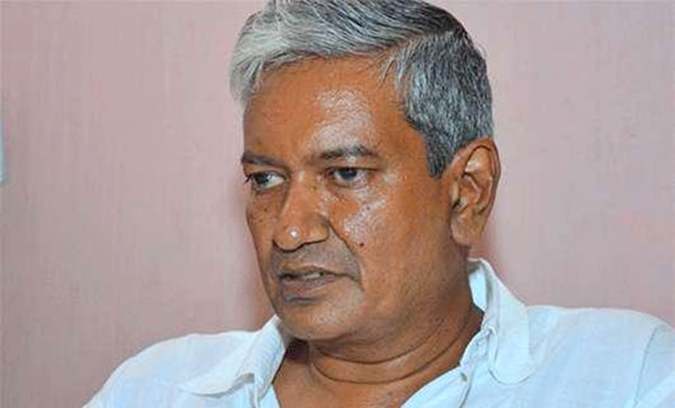

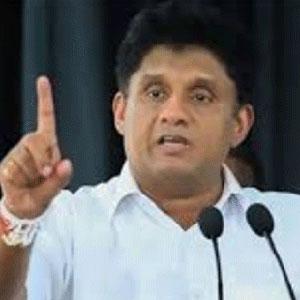 Parliament, Nov.24 (Daily Mirror) Revealing that a certain private institution had obtained a loan amounting to Rs. 7 billion from the Bank of Ceylon and People’s Bank using the same security, Opposition Leader Sajith Premadasa today urged the government to disclose the names of the first ten borrowers of the two State banks who had defaulted massive amounts of loans.
Parliament, Nov.24 (Daily Mirror) Revealing that a certain private institution had obtained a loan amounting to Rs. 7 billion from the Bank of Ceylon and People’s Bank using the same security, Opposition Leader Sajith Premadasa today urged the government to disclose the names of the first ten borrowers of the two State banks who had defaulted massive amounts of loans.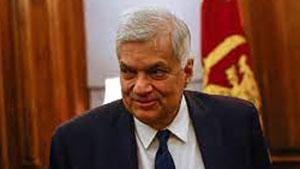 Colombo, Nov.24 (Daily Mirror) – President Ranil Wickremesinghe has slammed the Indian government for criticizing Sri Lanka at the United Nations over the issue of Sri Lankan Tamils. I don’t agree with Indian comments.
Colombo, Nov.24 (Daily Mirror) – President Ranil Wickremesinghe has slammed the Indian government for criticizing Sri Lanka at the United Nations over the issue of Sri Lankan Tamils. I don’t agree with Indian comments. 